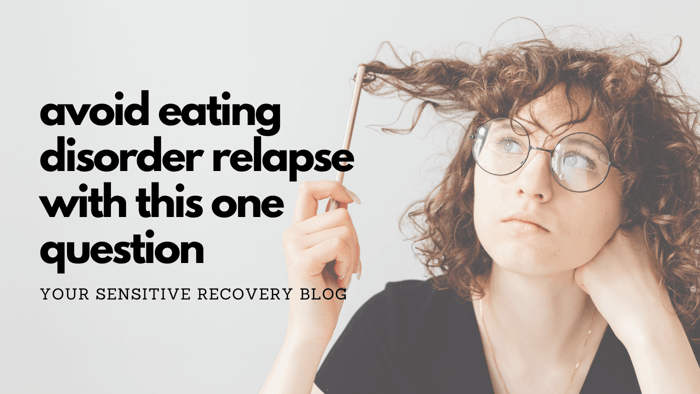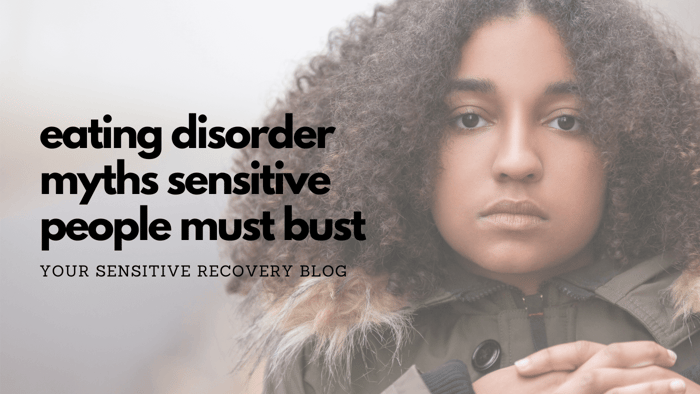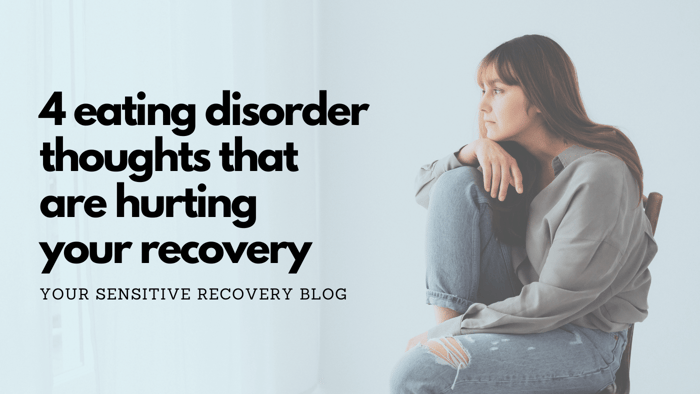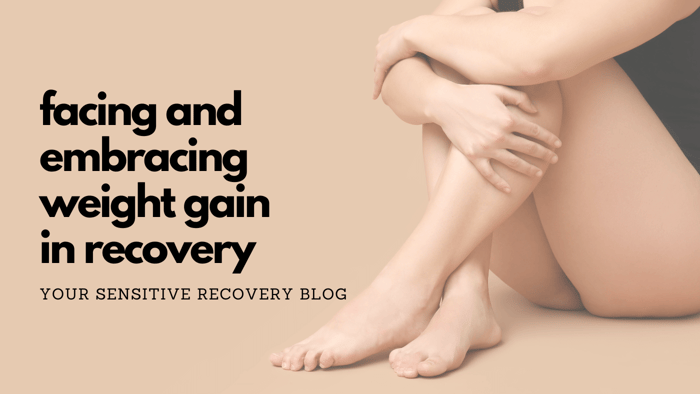The path to recovery from an eating disorder is a courageous and often tumultuous journey. As you navigate the struggles and successes, the threat of relapse can sometimes loom like a dark shadow, ready to undo the progress you've fought so hard to achieve.
And eating disorder relapse is nothing to scoff at. They can be deadly.
While there are many relapse prevention strategies available, there’s one powerful tool that often goes unnoticed:
A single, transformative question.
Read on to uncover how asking yourself this simple, crucial question can serve as a mental check-in, guide you through moments of vulnerability, and even steer you clear of a relapse.
I'll dive into the psychology of this question and give you tips on how to successfully integrate it into your recovery toolkit. Making it a regular part of your daily routine can strengthen your resilience and keep you aligned with your recovery goals.
Ready for it?
.
.
.
🥁 (drumroll) 🥁
.
.
.
"What's the next right thing?"
One of the vital skills of eating disorder recovery is being able to interrupt the "f*ck it" mentality that occurs when slip up, as you inevitably will. (Recovery is a learning process after all.) Asking "What's the next right thing" does just that.
So how does this protect you from relapse?
Well, relapse does not just happen to you. First, there is a lapse. A lapse is a single behavior that falls outside of your recovery plan. It might be skipping one snack, or having one binge. When that lapse is coupled with negative, reactionary thoughts and challenging emotions like shame or anger, it makes future lapses much more likely. When many lapses are strung together, it's a re-lapse in the making.
Asking yourself right after you engage in a disordered behavior, "What's the next right thing" can mean the difference between a lapse and a relapse. It's like bowling with bumpers. Maybe that ball is headed for the gutter, but the bumper gives it enough of a nudge to keep it in the lane.
To take your next recovery-oriented action, you first must identify it. This question puts a temporary pause on the "f*ck it" chain of events that are typically purely reaction-based and not response-based. Reactions are knee-jerk and usually involve intense emotions. Responses are balanced and thought-out.
Learning to respond instead of react is immensely important for your recovery process.
Pausing to identify your options is a pattern-interrupt. It can keep your amygdala (your brain's fire alarm) from co-opting your decision-making process, and help engage your prefrontal cortex instead. You're also intentionally connecting with your Healthy Self, and telling your Eating Disorder to take a back seat.
How to Ask It
In order to get the full benefit of this magic question, you want to be prepared to gently but firmly dialogue with the part of yourself that is definitely not going to be interested in the next right thing. This part believes that using shaming and blaming can create positive change. But we know better, right? 😉 Ask "What's the next right thing" with curiosity and with as much of a beginner's mindset as you can muster.
If you want to be a real pro, try pairing this question with 5 deep breaths for an extra boost of grounding.
When to Ask It
You can use this question at just about any point, but it's especially important right after you have a lapse. You don't need to experience a lapse for it to be helpful though! You might even find it useful to build it into your daily routine. For example, if you tend to struggle the most after meals, form a habit of asking yourself what the next right thing is after you finish eating and before you leave the table.
So?
No matter where you are in your healing process, this question can be a game-changer. What about right now? What's your next right thing?
💕
Before you go...if you're slipping, you can still turn things around.
Check out The 7-Day Relapse Reset to get back on track, fast. Use code blog157DRR for 15% off now.
✨ Josie Munroe, LMFT is a licensed therapist and owner of JosieMunroe.com and Your Sensitive Recovery As a recovered clinician and Highly Sensitive Person, she loves supporting others on their journeys to form new, empowered relationships with food, their bodies, and their sensitivity. Join the newsletter for a weekly boost of hope and inspiration. You deserve a recovery that works for you! ✨






